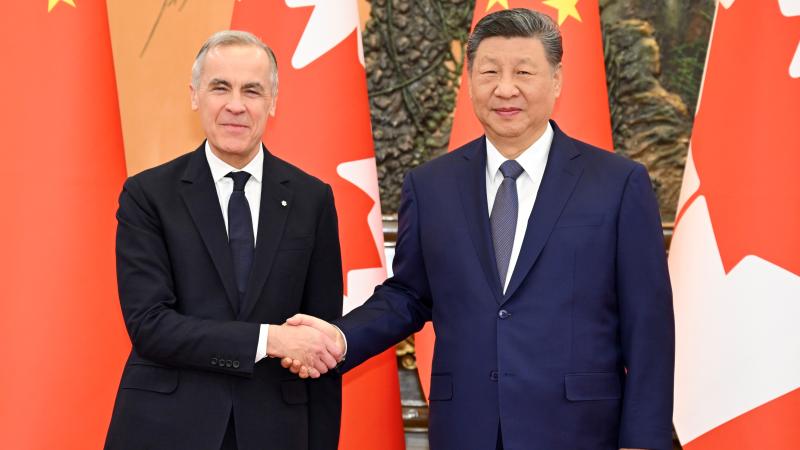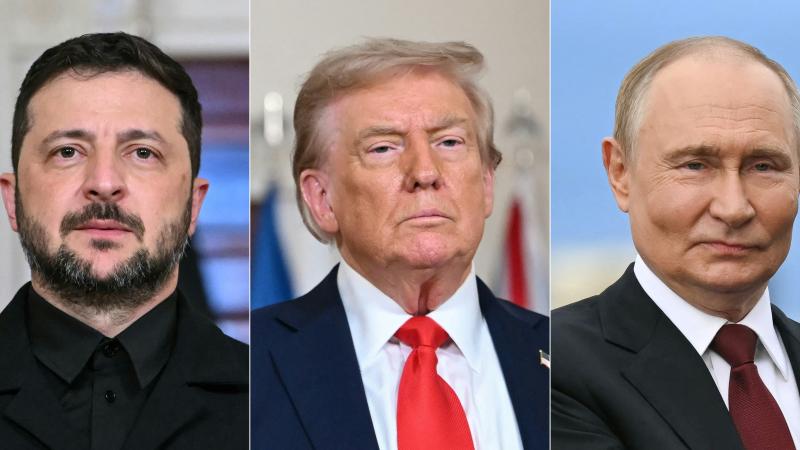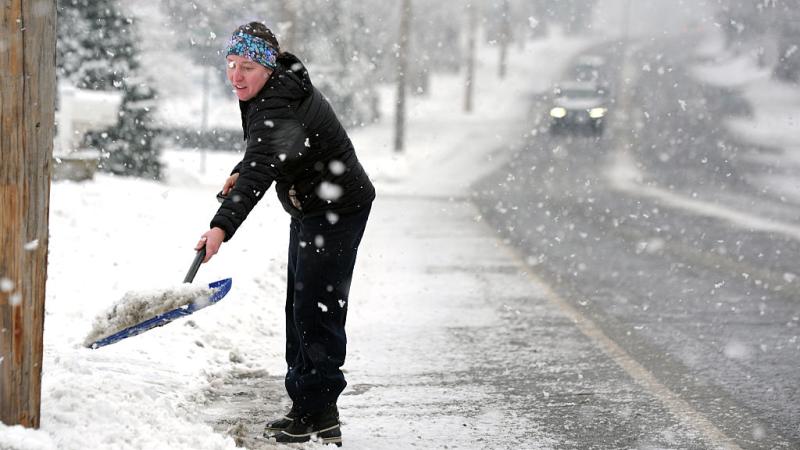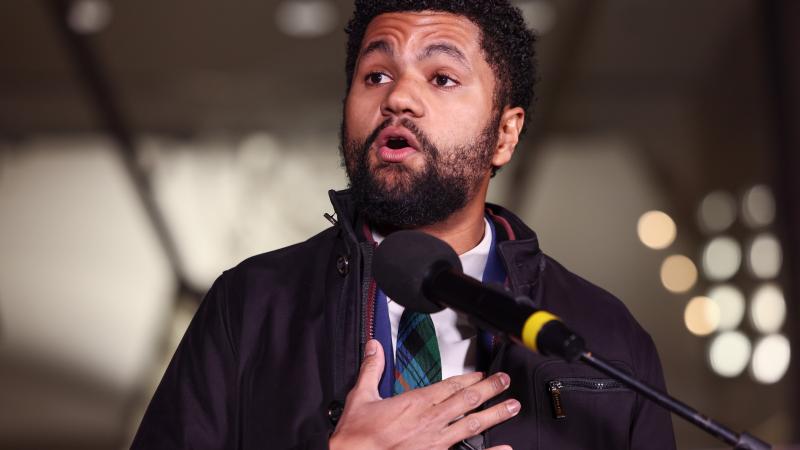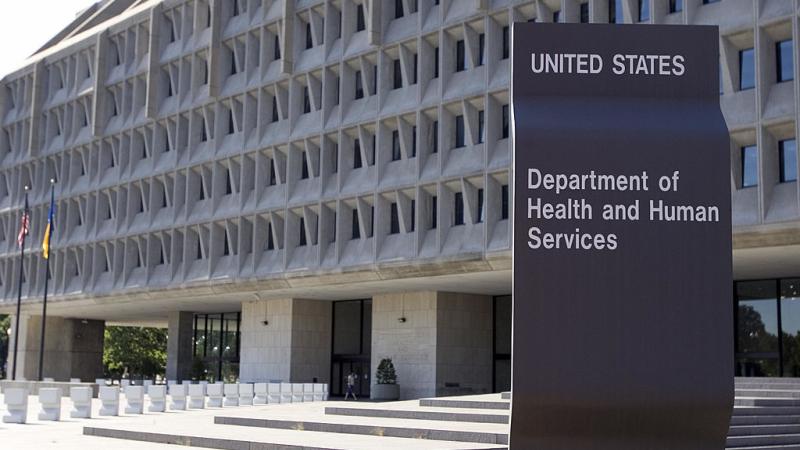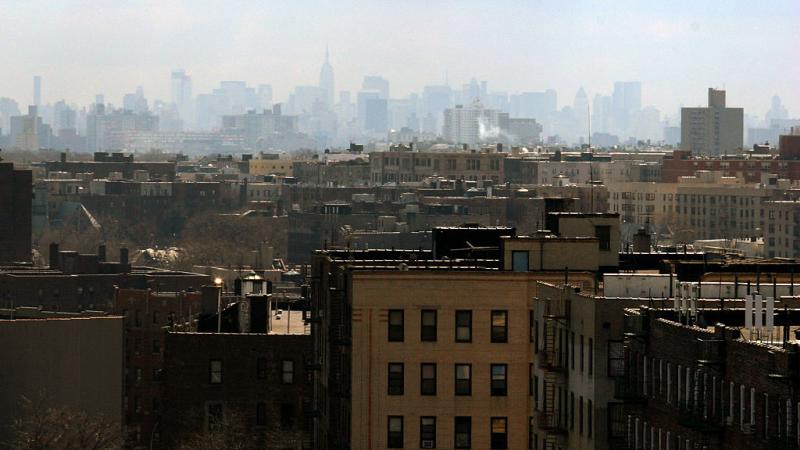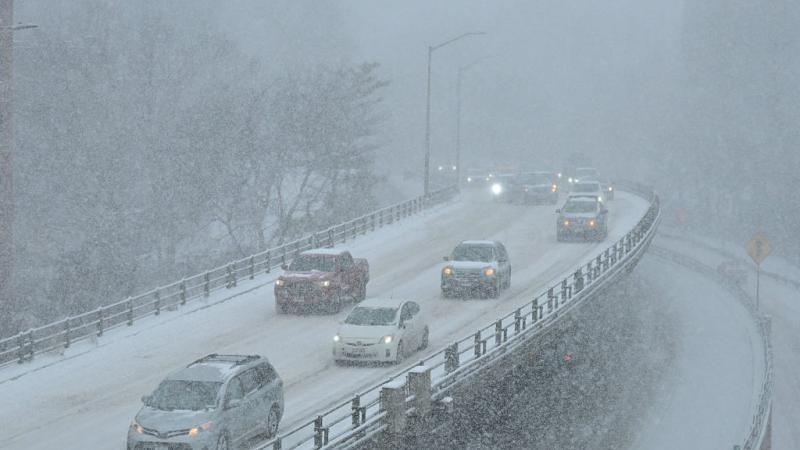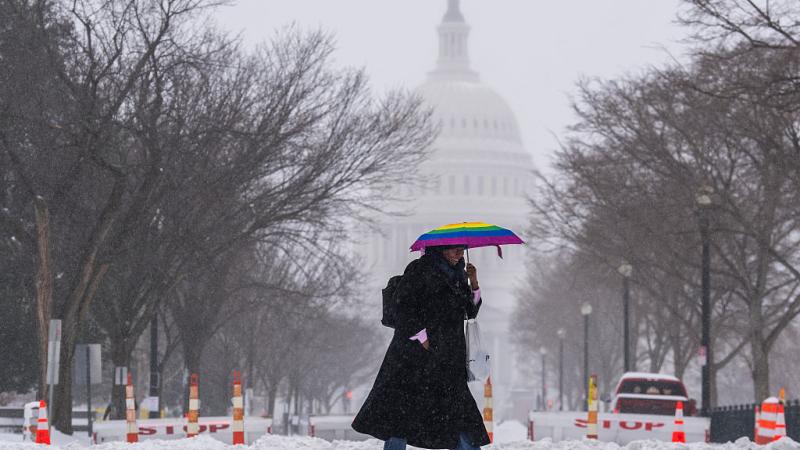Pessimism over two-state solution challenges Europe's effort to recognize Palestine sovereignty
Most Israelis and Palestinians are pessimistic that the two states could ever coexist, and perhaps emboldened by UK and France's acquiescence, Palestinians are increasingly supportive of armed resistance. They have historically called for the destruction of Israel and elimination of Jews everywhere.
An effort to recognize a Palestinian State was at the center of United Nations meetings on Monday, but years of conflict have taken a toll: Now most Israelis and Palestinians are both pessimistic that two states could ever coexist side-by-side, and Palestinians are increasingly supportive of armed resistance.
The UN meetings come as a handful of Western countries, including close U.S. allies, such as the United Kingdom, Australia, and Canada, as well as France, have formally recognized the concept of a Palestinian State, but without a concrete plan to bring about that reality. France and Saudi Arabia jointly hosted an international peace conference in support of the two-state solution on the sidelines of the UN General Assembly meetings in New York this week.
The souring of public opinion dims the prospects for the two peoples to live alongside one another and threatens to undermine the European effort to secure a two-state solution. Prematurely pressuring Israel to end the war and accept a two-state solution may also encourage continued militancy in the Palestinian territories, including Gaza, experts and polling data suggest.
Increasing pessimism on both sides
The percentage of Israelis who are pessimistic about the prospect of coexisting alongside an independent Palestinian state is at record levels since Pew Research first began asking the question in 2013. In that year, 50% of Israeli citizens said that peaceful coexistence with such a state was possible.
By 2025, following the Oct. 7 terrorist attack by Palestinian terror group Hamas and after two years of war in Gaza to eliminate the group, the share of Israelis that believed peaceful existence was possible had declined to 21%.
Regular polling of Palestinians is more difficult to obtain, but generally appears to follow a similar pattern. In the most recent polling from 2024, just one-third of Palestinians surveyed in both the West Bank and war-torn Gaza supported a two-state solution.
Additionally, more than half of those Palestinians surveyed said an “armed struggle” was the most effective way to end the Israeli occupation of purported Palestinian territories and to establish an independent Palestinian state, a statistic that illustrates the difficulty of achieving a lasting peace under current circumstances.
Terrorist elements in Palestinian groups given opportunities to regroup
Victoria Coates, first-term Deputy National Security Advisor to President Trump and Vice President of the Heritage Foundation’s foreign policy institute, told Just the News that efforts to reach a diplomatic settlement before the conflict is over may undermine long-term peace that would benefit both the Israelis and the Palestinian people.
“From my perspective, historically, a lot of the problem we have is that the Palestinians have never been definitively defeated by Israel,” Coates told the "John Solomon Reports" podcast on Sunday.
“There's always been so much outcry from the international community that you do get to some kind of negotiated settlement that lets the terrorist elements within the Palestinians regroup,” she continued.
But, in the country’s early days, Israel was in constant conflict with more than just the Palestinians. The Jewish state was surrounded on all sides by Arab enemies that viewed the State of Israel as an illegitimate authority imposed by colonial governments. However, after multiple wars, Israel and its Arab neighbors established a permanent, if sometimes tenuous, peace. Coates said this was because Israel decisively defeated its challengers before diplomacy could take place.
Coates said the Israel-Palestine struggle is “so different from what happened with the Arab nations, who, in 1973, decided they were tired of attacking Israel because they had lost.” She noted that those Arab states, including Egypt and Jordan, “definitively lost all of those wars from 1948 to 1973.”
Coates: Resolution comes by defeating Hamas
“But that resolution to the issue, and I think the most important thing for the Palestinians, even more than Israel, is to bring a resolution to this situation, and that comes by defeating Hamas.”
The European powers leading the charge to recognize a Palestinian state for the first time—led by the United Kingdom and France—did so out of frustration with the deadlocked peace negotiations and after seeing the chance of a two-state solution slipping away because of that deadlock.
However, far from encouraging a ceasefire in the conflict that has raged in the Gaza Strip for nearly two years, U.S. officials and the president warn that the European efforts will only encourage Hamas to continue fighting, prolonging the conflict that has devastated Gaza.
“You’re rewarding Hamas if you do that. I don’t think they should be rewarded,” President Donald Trump told reporters last month.
Trump also previously criticized French President Emmanuel Macron’s July 24 vow to officially recognize a Palestinian state while downplaying the impact that European countries would have on the ongoing ceasefire and hostage negotiations, saying it wouldn't “change anything.”
Several countries have long advocated for a two-state solution, a proposal that would see an independent Israel and Palestine coexist alongside one another as homelands for their respective peoples.
But the ongoing war between Israel and Hamas, which is a designated terrorist group in the United States, has brutalized the notion that a peaceful coexistence is within immediate reach. Despite attempts by the United States to mediate a hostage rescue and ceasefire, negotiations between the sides have stalled, with no end to the conflict in sight.
French, UK proposals do not empower "moderate" Palestinians
Both the French and the British argue that moving to formally recognize a State of Palestine – teaming up with Saudi Arabia and a coalition of Arab states – is important for charting a path forward for a post-conflict Gaza and West Bank that preserves the dream of a two-state solution.
However, the polling data suggests that the Americans are probably correct in assessing that recognition of a Palestinian state directly impedes the negotiation process, confirming the views of a majority of the Palestinian people that armed resistance is not only necessary but effective.
“Rather than empowering moderate Palestinians, as the Europeans hope would happen, it would have the opposite effect,” David May, a senior research analyst at the Foundation for Defense of Democracies who focuses his research on Israel and Palestine, previously told Just the News.
“Not only is there no credible moderate Palestinian leadership, this action as a result of a war Hamas started would prove to the Palestinians that they can only achieve independence through violence, and Hamas will be crowned as the deliverer of Palestinian statehood,” May added.
In an official statement in response to the Europeans bestowing recognition on a Palestinian state, Israel said the plan “does not promote peace, but, on the contrary, further destabilizes the region and undermines the chances of achieving a peaceful solution in the future.”
In retaliation for the decision, the Israeli government is currently weighing further annexations of West Bank territory that would make up the core of any future Palestinian state.
Prime Minister Benjamin Netanyahu also delivered a defiant promise: “A Palestinian state will not be established.”
Netanyahu: Rewarding terror
“I have a clear message to those leaders who recognize a Palestinian state after the horrific massacre of October 7: you are granting a huge reward to terror,” Netanyahu said in a statement on Sunday after the coalition of English-speaking countries announced they would recognize Palestine.
“And I have another message for you: It will not happen. There will not be a Palestinian state west of the Jordan,” he added, referring to the Jordan River, which separates the West Bank territory from the country of Jordan.
The terrorist group Hamas said that the recognition from the UK and others marks “a victory for Palestinian rights and the justice of our cause,” The Telegraph reported.
The Facts Inside Our Reporter's Notebook
Links
- a handful of Western countries
- as well as France
- declined to the lowest levels
- just one-third of Palestinians
- more than half of those surveyed
- Coates told the John Solomon Reports podcast
- European efforts will only encourage Hamas to continue fighting
- Trump told reporters
- previously criticized
- Macronâs July 24 vow
- designated terrorist group
- previously told Just the News
- an official statement
- Netanyahu also delivered a defiant promise
- the Telegraph reported
